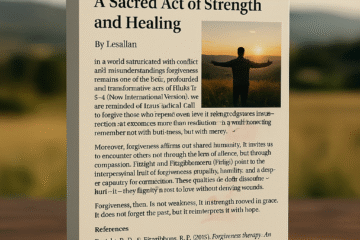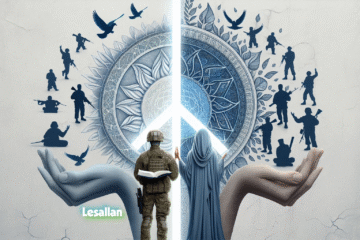
The topic of this blog is about families and the Philistines. Families and the Philistines are two different topics that can be related in various ways. Here are some connections:
Families are people related by blood, marriage, or adoption, even people with the same momma but two different daddies. Families can have different cultures, traditions, points of view, and beliefs.
Philistines were a people who lived on the southern coast of Palestine in the Iron Age. They were enemies of the Israelites and often fought with them. Philistines had a distinct culture that was influenced by their Aegean origin. They had their own pottery, weapons, tools, houses, and gods. They also ate pork and traded with other people.
The Philistines lived on the southern coast of Palestine in the 12th century BCE, around the same time as the Israelites. They were part of a confederation of tribes known as the Sea Peoples, who came from the islands and northern countries of the Mediterranean and attacked Egypt and other lands. The Philistines settled in five cities: Gaza, Ashkelon, Ashdod, Gath, and Ekron. These cities formed a loose alliance called the Philistine Pentapolis.
The Philistines had a distinct culture, with their own pottery, weapons, tools, houses, and diet. They also had advanced technology and military organization, which gave them an edge over their neighbors. They worshiped various gods and goddesses, such as Dagon, Astarte, and Baal-Zebub. They often clashed with the Israelites over territory and resources, and some of their famous battles are recorded in the Bible. For example, Samson fought against the Philistines with his supernatural strength (Judges 13-16), and David defeated the Philistine champion Goliath with a sling and a stone (1 Samuel 17).

The Philistines reached their peak of power and prosperity in the 11th and 10th centuries BCE, but they gradually lost their independence and identity as they became subject to the Assyrians, Egyptians, Babylonians, and Persians. The Babylonian king Nebuchadnezzar II destroyed some of their cities and exiled many of their people in the 6th century BCE. After that, the Philistines faded from history, and their culture was assimilated into other groups.
The Philistines are often portrayed negatively in the Bible and later literature as enemies of God’s people and uncultured barbarians. The word philistine has come to mean someone who is ignorant, narrow-minded, or hostile to art and culture. However, recent archaeological discoveries have shed more light on the Philistines’ origins, achievements, and contributions to the ancient world. They were complex and diverse people who had their own values, beliefs, and traditions.

The family today in 2023 is a word that can have different meanings for different people. Some may think of family as a group of people related by blood or marriage, while others may include friends, neighbors, or pets as part of their family. There is no right way to define family, as family structures and relationships vary across cultures, contexts, and preferences.
In this blog post, besides the Biblical aspects of the Philistines, we will explore some of the common types of family structures that exist in 2023 and how they reflect the changing realities and needs of people today. We will also discuss some of the benefits and challenges each type of family may face and how they can support each other and their children.
Nuclear Family
A nuclear family consists of two parents and their biological or adopted children living in one household. This family is the traditional type of family that many people think of when they hear ‘family,’ but it is not as common as it used to be. According to the Pew Research Center, only 46% of U.S. children under 18 live in a nuclear family in 2023, down from 61% in 1980.
Nuclear families may have some advantages, such as having more financial stability, emotional support, and parental involvement than other families. However, they may also face challenges, such as balancing work and family responsibilities, dealing with marital conflicts, and coping with stress or isolation.
Single-Parent Family
A single-parent family consists of one parent and their biological or adopted children living in one household. This type of family may result from divorce, separation, death, or choice. According to the Pew Research Center, 23% of U.S. children under 18 live in a single-parent family in 2023, up from 16% in 1980.
Single-parent families may face some difficulties, such as having less income, time, and social support than other families. They may also experience more stress, stigma, and discrimination from society. However, they may also have some strengths, such as being more independent, resilient, and adaptable than other families. They may also have closer bonds and communication with their children.
Blended Family
A blended family consists of two parents with children from previous relationships living in one household. This type of family may result from remarriage or cohabitation after divorce or separation. According to the Pew Research Center, 16% of U.S. children under 18 live in a blended family in 2023.
Blended families may face challenges, such as adjusting to new roles and relationships, dealing with conflicts and jealousy among siblings or step-parents, and navigating legal and financial issues. However, they may also have some benefits, such as having more love, support, and diversity than other families. They may also have more opportunities for learning and growth from different perspectives and experiences.
Extended Family
An extended family consists of relatives other than parents and children living in one household or nearby. This type of family may include grandparents, aunts, uncles, cousins, nieces, nephews, or other kin.
The Single-Man Family
A single-man family in 2023 is a household led by a man who is not married or living with a partner. A single-man family is a man living alone and communicating with others through modern technology—the man who always pays his bills and lives life as comfortably as possible.
The Benefits of Being a Single Man
Being single has many benefits; the single man has more time to use as they want. We can pursue our hobbies, interests, passions, and goals without compromising or coordinating with a partner.
- You have more freedom and independence.
- You can make your own decisions, travel where you want, spend your money how you like, and live by your own rules.
- You have more opportunities to grow and learn. You can challenge yourself, take risks, have adventures, and discover new things about yourself and the world.
- You have more social connections. You can nurture your relationships with your friends and family, meet new people, and expand your network of support and companionship.
- You have more self-awareness and self-love. You can focus on your own needs, feelings, values, and preferences. You can appreciate your strengths and work on your weaknesses. You can be comfortable and confident in your own skin.
Being single can also reduce stress, improve health, enhance creativity, and increase financial responsibility. Being single can be an excellent option for many people. For this writer, it is known that God gave him this day, these technological advancements, to write again on this day of the Lord, June 25, 2023. Blessings to all, even the haters, the sinners, and those that have wronged those that are right!
Written by Lesallan
June 25, 2023



